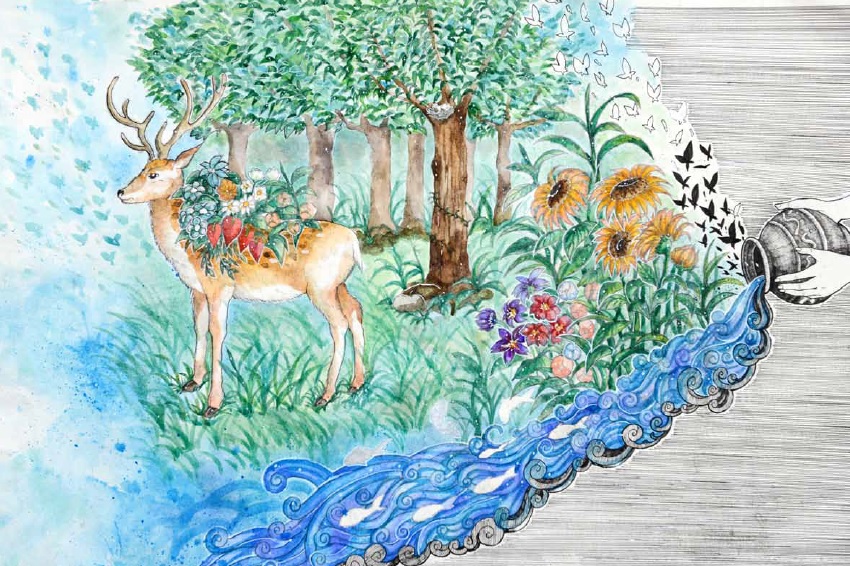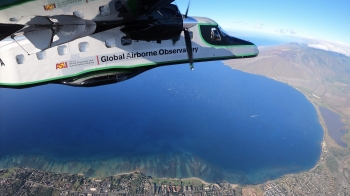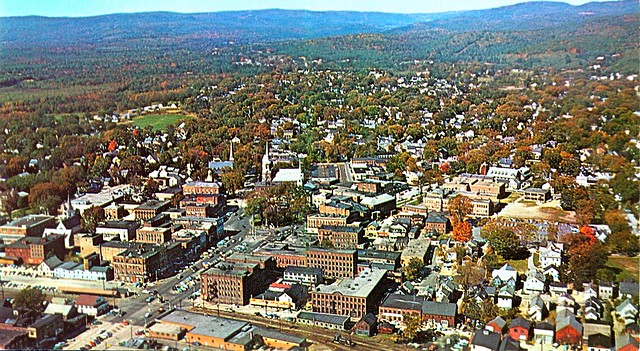
Greg Asner (A global ecologist)
A person who is notable for Environmental Change in the world is Greg Asner. Greg is a global ecologist alliance of ecosystem, conservation and climate sciences. He has put it in constant hours, day in and day out, developing his technology to access and analyze extensive amount of data about ecosystem, including assessing carbon emissions, coral reef resilience, and biodiversity. Greg Asner is the founder of the "Global Airborne Observatory" which was previously known as the Carnegie Airborne Observatory". "The GAO’s mission is to make scientific discoveries, support conservation, and galvanize action to protect the environment at large geographic scales."
"Greg Asner is the director of ASU's Center for Global Discovery and Conservation Science. He serves on the faculty of the School of Geographical Sciences and Urban Planning and the School of Earth and Space Exploration. Asner is an ecologist recognized for his exploratory and applied research on ecosystems and climate change at regional to global scales. His research spans the areas of spatial ecology and biodiversity, terrestrial carbon cycle, animal-habitat interactions, and climate change. He develops scientific approaches and technologies for investigation and conservation assessments of large ecoregions"
What motivated Greg Asner? He wanted to create better ways about the status of natural resources and also being able to develop scientific approaches and technologies for investigation and conservation assessments of large ecoregions, including carbon sequestration and emissions, animal habitat, coral reef resilience, and biological diversity. From my perspective, Greg is a person I really admire, he has showed hard work time and time continuously and it really gives me motivation to be successful in the future on whatever I put my mind to.
Global Airborne Observatory
A view showing the pre-Columbian agricultural raised fields in seasonally flooded savannas of French Guiana
The Amazon rainforest, The Amazon jungle or Amazonia, which ever name u want to give it, it won't matter but what you do have to keep in mind that it is Earth’s largest reservoir of plant and animal diversity, and it has been subjected to especially high rates of land use change, primarily to cattle pasture. This so unique rainforest is a moist broadleaf tropical rainforest in the Amazon Biome covering most of the Amazon Basin in South America. Brazil takes up the majority of the forest (60%) and then it is followed up with Peru (13%), Columbia (10%) and also minor parts in Bolivia, Ecuador, French Guiana, Guyana, Suriname and Venezuela. The Amazon produce over half of the planet's still existing rainforest, and contain the largest and most biodiverse portion of tropical rainforest in this world, with an estimated 390 billion individual tress divided into 16,000 species.
"The Amazon rainforest is a biodiversity hotspot and large terrestrial carbon sink threatened by agricultural conversion. Rainforest-to-pasture conversion stimulates the release of methane, a potent greenhouse gas. The biotic methane cycle is driven by microorganisms; therefore, this study focused on active methane-cycling microorganisms and their functions across land-use types. We collected intact soil cores from three land use types (primary rainforest, pasture, and secondary rainforest) of two geographically distinct areas of the Brazilian Amazon (Santarém, Pará and Ariquemes, Rondônia) and performed DNA stable-isotope probing coupled with metagenomics to identify the active methanotrophs and methanogens."
One in ten of the world’s known species live in the Amazon. The rainforest is the planet’s richest and most-varied biological reservoir, containing millions of species of plants, insects, birds and other forms of life, many still unrecorded by science. "Recent findings based on the analysis of pollen, charcoal and other plant remains spanning 2,000 years suggest that we could learn how to manage the land from the Amazon’s earliest inhabitants, with that being said due to traditional belief of the indigenous people, they used fire as a way of managing land figuring out a technique known as raised-field-farming. "Raised-field farming required the building of small mounds along the savannas that form the periphery of the rainforest, where the Amazonians would then farm. These artificial mounds would naturally drain and aerate the soil while retaining moisture, essential for the Amazon’s climate, which experiences an equal measure of drought and flooding."
The Amazon is home to more than 120 indigenous groups, including remote tribes that have not yet made contact with modern civilization. Groups such as the Awajun and Maijuna have been living in the region for thousands of years, Foods such as rice, potatoes, coffee and corn are also products of the Amazon.
The relationship I see between my person and event is simple, the two both have a huge impact on the environment in many different ways across the country, making a change for people all over.
Keene New Hampshire
How does the person/event affect the lives in Keene, NH? One I feel like Greg Asner did a really good job trusting his process to become the big influence he has on a lot of us. His continuously effort to figure out ways to protect ecosystems and reduce carbon emissions, developing scientific solutions to conserve the millions of different plant and animal species on our planet, will not go unnoticed in my book and I really appreciate the work he has done and is currently doing to better our environment. Secondly I feel like lots of people should take this class to learn about events such as the Modern conversion of tropical rainforest forest in the Amazon to agricultural field because it really opened my eyes and made me think of scenarios in my head, like what if we had to experience this time of event and how will people react. These past events is good for us to all know what happened before our time and make people like me think of ways on how we can continue to grow to help keep our environment clean but also safe.

An Piece by Sukanto Tanoto
A piece of art that reminds me of the person I wrote about is this picture write here. I found this picture scrolling through my social media feed a couple days back and I just fell in love with the beautiful painting and just the way they illustrated it really opened my eyes, so it kind of all comes full circle that I'm able to bring this up and having my impactful person in the environment being able to have to have some type of connection to this Art piece.






